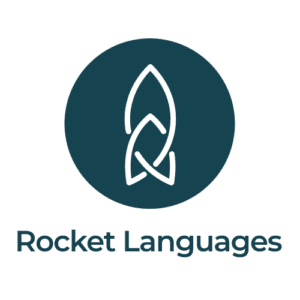
There are many different language learning resources available in all kinds of formats, and it can be difficult to choose the right one for a new learner. However, getting started is not as difficult as it might sound. There are many different paths which can work well.
In the modern day, the first place new learners might go are online resources. Although it’s good to do at least some studying offline, online resources can be very effective as well. Many of them can also be used for free or at a low cost without going anywhere. Online resources include websites with vocabulary and grammar, applications like Duolingo, podcasts, and Youtube channels. While they seem simple, many of these, especially in combination, can get a learner very far.
For those ready for something comprehensive, there are also live courses that can be found online. These can include both group courses with more of a classroom format and private tutors. However, it is important to keep in mind that until you already have basic phrases, vocabulary words, and grammar structures memorized, there is no reason to spend money on these. Often, learners feel like they are not learning enough independently and already need a tutor at the early stages. The truth is, they just need to be persistent. It’s entirely normal to feel like you are not learning much at first, and there’s nothing special that a tutor can teach you in the beginner stages that you can’t learn yourself from beginner resources.
When you do feel ready to get some real courses, there are many options. You can find an online school, or hire a freelancer through a special platform or just a classified listing. When using a school, make sure the school has good standards. Just because teachers are hired through a school does not mean that they are qualified. Many of them have very low standards and only require teachers to be at, for example, a B1 level. They often take large sums of money from students, while paying teachers a very small fraction. When looking for freelancers, make sure to check qualifications. Anyone can go online and claim to be an English tutor, and some of the certificates are available to anyone who pays a few dollars and answers some multiple choice questions.
There are also traditional offline resources. These include classes, which should be checked for quality just like online classes. Books can be a very good resource. The information probably is not much different than anything you would find online, however, some people find it easier to learn from a physical book rather than being in front of a computer all day. Books come in many different formats. There are books are just straight grammar, books with exercises, vocabulary books, graded readers, and other, so, look around and see what appeals to you.
Some new learners are not sure what order to learn a language in. Although you should revisit all areas of a language throughout the learning process, it is good to start first from pronunciation. Learn the sounds of the language, spend some time listening to it without worrying about understanding, and learn some spelling rules. Then, it is good to learn some basic words and phrases to have at least something to work with, followed by grammar rules, followed by broader vocabulary study.
Correct pronunciation is good to learn early on to prevent fossilizing mistakes, especially since pronunciation can be affected by spelling, which can sometimes be misleading. In general, it is good to have a silent period while getting started with language learning. This allows learners to just take in a language for a while instead of trying to speak too early and fossilizing mistakes.
The most important part is just to be persistent. Do not spend money before you’ve done what you can do on your own. Do not feel like you are necessarily doing something wrong because it’s taking some time to get the basics. It’s good to read different tips on how to learn, however, no matter what methods you choose, being persistent and believing in yourself will definitely get you somewhere.


